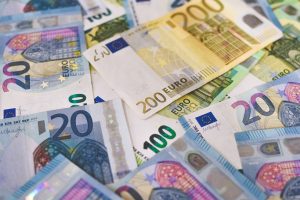Forex trading is a popular investment option that involves buying and selling currencies in the foreign exchange market. To participate in forex trading, traders need to work with a forex broker who provides them with the necessary platform, tools, and support to execute trades in the market.
There are different types of forex brokers, each with unique features and characteristics that suit different trading styles and preferences. In this article, we will explore the different types of forex brokers and their key features.
1. Market Maker (Dealing Desk) Broker
A market maker, also known as a dealing desk broker, is a forex broker that creates a market for its clients to trade. This means that the broker acts as the counterparty to their clients’ trades, taking the opposite side of the trade. Market maker brokers make money through the spread, which is the difference between the bid and ask price.
The key advantage of a market maker broker is that they provide liquidity, which means that traders can execute trades quickly and easily. However, market maker brokers have a conflict of interest, as they profit from their clients’ losses. This means that traders may experience slippage or requotes, as the broker may delay executing trades or manipulate prices to their advantage.
2. Electronic Communication Network (ECN) Broker
An ECN broker is a forex broker that uses an electronic communication network to match buyers and sellers in the market. This means that the broker does not create a market but instead provides a platform for traders to trade directly with other traders in the market.
The key advantage of an ECN broker is that they offer transparency and anonymity, as traders can see the best bid and ask prices and execute trades without the broker’s intervention. ECN brokers make money through a commission on trades, which means that they have no conflict of interest with their clients.
However, ECN brokers may require a higher minimum deposit and charge higher fees than market maker brokers. Traders may also experience wider spreads during low liquidity periods, as there may not be enough buyers and sellers in the market.
3. Straight Through Processing (STP) Broker
An STP broker is a forex broker that uses a straight-through processing system to execute trades. This means that the broker sends clients’ orders directly to liquidity providers, such as banks and other financial institutions, without any intervention or manipulation.
The key advantage of an STP broker is that they offer fast execution, as trades are executed directly with liquidity providers. STP brokers also offer a high level of transparency, as traders can see the best bid and ask prices and the depth of the market.
However, STP brokers may charge higher fees than market maker brokers and may require a higher minimum deposit. Traders may also experience wider spreads during low liquidity periods, as there may not be enough liquidity providers in the market.
4. No Dealing Desk (NDD) Broker
An NDD broker is a forex broker that does not have a dealing desk and provides direct access to the market. This means that the broker sends clients’ orders directly to liquidity providers, such as banks and other financial institutions, without any intervention or manipulation.
The key advantage of an NDD broker is that they offer fast execution and a high level of transparency, as traders can see the best bid and ask prices and the depth of the market. NDD brokers also have no conflict of interest with their clients, as they do not profit from their clients’ losses.
However, NDD brokers may charge higher fees than market maker brokers and may require a higher minimum deposit. Traders may also experience wider spreads during low liquidity periods, as there may not be enough liquidity providers in the market.
In conclusion, choosing the right forex broker is crucial for success in forex trading. Traders should consider their trading style, preferences, and risk tolerance when selecting a forex broker. By understanding the different types of forex brokers and their key features, traders can make an informed decision and find a broker that suits their needs.





